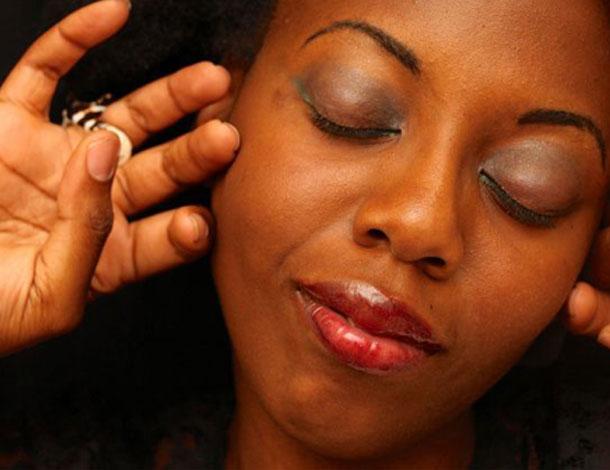“You look tired,” I say aloud and quite instinctively.
“I am,” the girl replies.
The four adults around us do not stir, continuing on with their animated conversation with the girl - about eleven years in age - nestled in the back corner of the elevator, a plastic bag in each hand.
Once down at the ground floor, I begin to move towards the building’s exit doors. And then I hear the same girl’s voice trailing me.
“Thank you for asking how I am,” she says.
The same adults are stationed by the elevator doors, still deep in debate, their hand gestures and laughter punctuating the flow of their talk.
I tell the girl how thoughtful it is of her to reach out. And then I ask her why she is so tired. She explains she has splinters in her palms from the umbrella she has been carrying all evening; and all the grown ups are still making her carry all the bags.
“I am sorry to hear that,” I reply. “But I hope you can get home soon and rest.”
This is all I can think to realistically encourage her with, for the adults she is with don’t seem at all fazed by her discontent.
She thanks me again and wishes me well as I finally set out again on my way.
As I walk away, I am aware of how much that acknowledgement must have meant to her. I hadn’t been aware of it when I made the observation that she was tired, but it becomes clearer to me that it is possible that no one else has acknowledged her presence, let alone empathised with her the whole day.
We know it’s important for us to be listened to and acknowledged by our peers. But there is certainly something affirming about being seen, and listened to, by those whom we deem to be beyond our usual ‘reach’; those people we look up to or think would never have time to talk to us. And people older than us - especially when they don’t seem to have a stake in taking notice of us - tend to fit this description well.
Often, we have conversations around the need for our feminism to not only be intersectional, but also intergenerational. We talk about the power of organising and movement building across generations; about the great potential for transfer of knowledge and experience through intergenerational dialogue and documentation of our movements. But just as often, we have conversations around exclusion and erasure.
Younger feminists voice feelings that their predecessors - older feminists - are not willing to make space for them and acknowledge their presence within movements; and older feminists concurrently express feelings that their efforts are underappreciated and that their historical contributions are being marginalised by younger feminists.
These are all, indeed, real issues. And we need to have more open and honest conversations around them as they are rooted in many things including our socialisation and notions around woman-to- woman relationships which continue to be informed and intercepted by patriarchy.

Some of my greatest healing in recent times has been through such a feminism; a feminism of community with women old enough to be my mothers, but whom I think of instead as big sisters. Women who insist on my calling them by their first names (and not Professor or M’am or even Aunty), women who call me into their powerful spaces as their friends and hoist me up with their sturdy spines, allowing me to see beyond my pain and angst into the many tomorrows that they themselves have lived through.
Some of these are women I have read and researched about, women I hold in abundant awe, women who have progressed women’s rights and realities in ways that gratitude will always fall short of expressing. By every standard, these are accomplished women.
And yet at their core, they bear a humility that says, “I see you. Let me take care of you.”
This care is neither condescending nor abrasive, but rather it is grounded in the sharing of scars and laughter and dance and food; it is self-care. It is the reassurance that our movements have always been fraught with danger and vulnerability - and that they always will be - but that they are moving and in the process, moving us too. It is the affirmation that the things we care about matter, have always mattered, and will continue to matter for a new generation will soon arrive and take up the same fight.
All too often, we forget that the traumas we live through have been experienced by others. And that there is sometimes greatest healing in speaking about them with those who can hold time and a mirror before us, reminding us - and themselves - that we did the best we could with what we had.
That we are seen.
That we matter.
That our pain - collective and vast - has never been in vain.
And that it never will.
“And there are no new pains. We have felt them all already. We have hidden that fact in the same place where we have hidden our power.”
Audre Lorde
2224x1253.jpg)